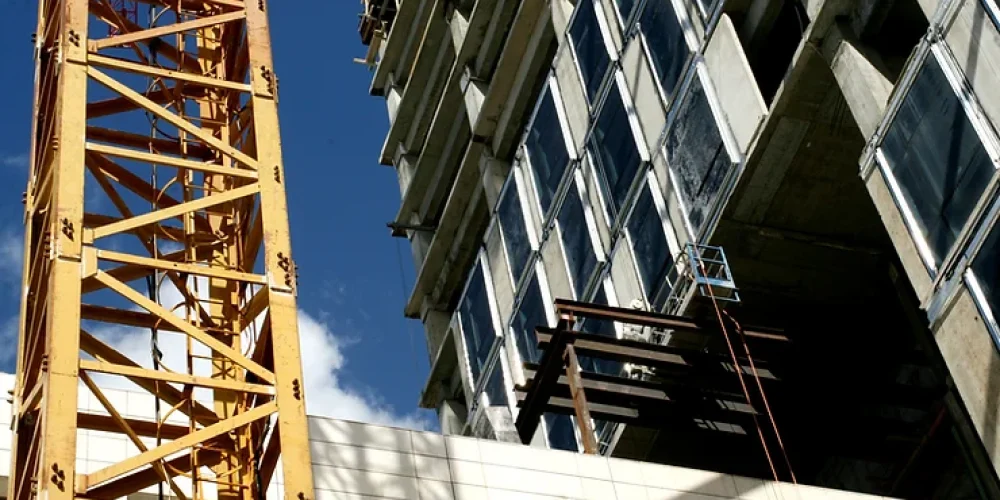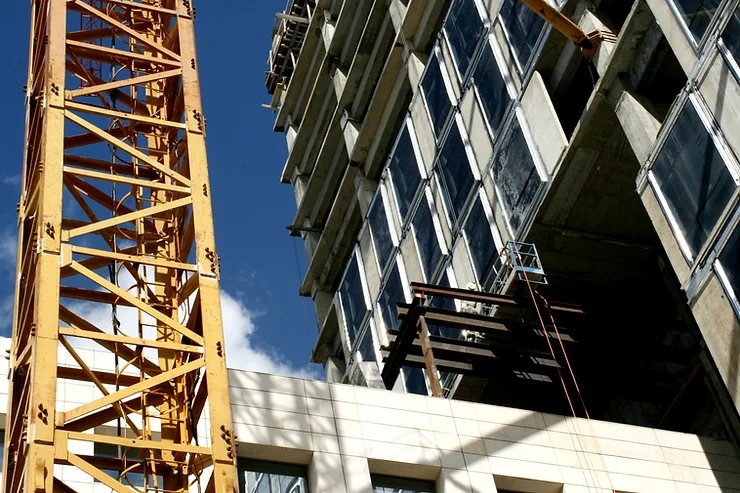Both are classified as alternative mechanisms of dispute resolution, as they are a way to replace the traditional solution, that is to say, by appealing to the administration of justice as a State monopoly. Find a basis of these mechanisms in the agility of the business brought about by the globalization and large-scale investment, in addition to the specialization of the sciences, require a tool for fast and technical than the traditional organ of justice.
Now, the Dispute Boards are a figure contractual, technical agency, independent resolves disputes of the parties, in addition to providing assistance informal in the topics of their expertise, being an instrument for the large infrastructure works, as agile as the investment in these mega projects demand.
The success of this mechanism has as a cornerstone of knowledge right handed whom the parties choose to conform to the panel. The Dispute Boards have as origin the technical evolution of the support of the “engineer at work”, but he began to question his impartiality, achieved through the panel.
Another advantage of the Dispute Boards is that they are cheaper than the instance of the arbitrator; in general you should not go to the second above-mentioned. In consequence, they are a filter to determine which is the focus of the controversy, which many times has been called pre-arbitral awards.
Find this mechanism an ease in the application of the rules given by the different institutions, enough with the inclusion of a standard clause in the contract offered by the Centres for International Arbitration.
Índice de contenido:
The Dispute Boards make two kinds of decisions:
- Recommendations, that determinations are non-binding, but that is voluntary for the parties and aims to bring to fruition the contract. You have a deadline for a challenge of 30 days, if it is not contested it becomes binding on the parties and may before breach of it, you can go to the court of arbitration; and
- Decisions, which are of a mandatory character.
The International Chamber of Commerce of Paris according to the provisions of the Regulations on Dispute Boards makes it clear that there are arbitration tribunals and their Determinations are not enforceable as arbitral awards. No one can relate the obligation of the Determination of the enforceability, that is to say, the contents of these is binding on the parties only if they were determined in the contract, but the implementation depends on the willingness of the parties to submit to arbitration.
The parties agree by contract that shall be bound by the Determinations under certain specific conditions set out in the Regulations. In addition, the International Chamber of Commerce (ICC) through the Center of the Dispute Boards of the CCI can provide administrative services to the parties, which include the appointment of the members of the Dispute Board, the adoption of the decisions referred to disqualifications of members of the Dispute Boards and the review of Decisions. The rules of the ICC, differ from other models because they are designed to contracts, long and mid-length.
Another of the distinctive features of Dispute Boards contained in the Regulations of the ICC is the power delivered to the International Chamber of Commerce, pursuant to article 21, to review a decision before it is communicated to the parties. However, such authority is granted only if the parties expressly so agreed.
In addition, pursuant to the provisions of article 17 (3), the parties are motivated to find the amicable resolution of disputes, despite the fact that the procedure through the panel of experts is developing.
Dispute Adjudication Boards of the FIDIC
We also have the Dispute Adjudication Boards of the FIDIC. Introduced the concept for the first time in 1995 for infrastructure works and two years later it extended to contracts for works of civil engineering and to the design and construction of public works. Prior to the date the dispute between owner and constructor at the FIDIC were only resolved by an engineer paid by the client which does not guarantee its impartiality.
In the united States we find the Dispute Boards Review of the American Arbitration Association (AAA), they also offer the service of administration of the Dispute Boards Review. The AAA attributes his host that the 3 members are neutral, since your appointment is subject to the approval of both parties; all panel members sign an agreement agreeing to a deal egalitarian; the fees are shared between the parties; the Dispute Boards are created before there were any controversy, and all the members are kept informed of the progress of the project through regular checkups and visits to the work.
While the arbitration is a model settlement heterocompositivo, that is to say, it involves the intervention of a third party, impartial to the conflict, the process is settled or resolved. It is a body procedure provided for choice of law, the monopoly of justice that were talked about at the beginning of this writing the State gives individuals the possibility of administering justice.
Arbitration is a figure that exists since the roman law, as evidenced in the Digest and the Code of Justitiano, there it acquires its centrepiece, the will of the parties. In the Middle Ages is sluggish, but takes up forces in the French Revolution seeking institutions that met with justice to the parties. However, their true empowerment is found in the TWENTIETH Century, with the globalization, taken from the hand of the trade where the borders are blurring, the traditional mechanisms are not supplemented by the issue of ceding sovereignty to allow another State judge to the national.
As special features of the arbitration we find the economy, being compared with the traditional justice is more expensive payment to the center of arbitration and the arbitrators, as the justice as law in general is free, but the analysis should be done in economic terms, the only well that it is impossible to recover is the time to be even more relevant in the case of contracts for work where the machinery, the staff and the investment is affected by the paralysis in the execution of the contract. Also the informality, referred to, which the parties can choose which procedure to use, and are not subject to the code of procedure of the country where it has been generated controversy, or even worse when it is not possible to identify the country which is competent to resolve the dispute. Another feature is the confidentiality that ensures the arbitration, as the parties can choose which part of the award, make it public, and ensure your right to the Good Will and the Know-How, intangible assets are as important as the tangible assets of the company, as in the traditional justice speaks of advertising.
You should differentiate between the arbitration, which is the alternative mechanism of conflict resolution; and the center of conciliation, legal person that provides its logistics to meet the parties, provide the service of courtrooms, secretary and files, this type of arbitration is called managed, while when there is no place physical or legal person administering the arbitration, only a natural person who has authorisation, and is able to hold the arbitration is called ad hoc.
The competition is assigned to the arbitrators to include in the contracts, arbitration clauses that can be inserted into any type of agreement between owners, architects, engineers, contractors, and subcontractors. The parties can draft a clause or simple include those who wish to be its arbitrators and the arbitration, that is to say, the country where you will solve the conflict point of vital importance to the agility that is able to do required a ruling executive or if the request for precautionary measures, also to know the mechanisms of controversy of the arbitral awards in the host country so as to protect the finality of the judgment.
It is also possible that if in the course of the work it generates a conflict that is not made in the clause may be submitted to arbitration upon agreement of the parties.
Types of instruments in the field of international arbitration-commercial
There are two types of instruments in the field of international arbitration-commercial, the New York Convention of 1958 and the UNCITRAL model Law, 1987.
- The New York Convention was born in the scenario of the United Nations, its legal nature is convention and has as its goal the recognition and enforcement of arbitral awards, therefore, all States that have signed the convention, as a general rule, must be recognized as internal decision the award has been signed in a different State.
- The UNCITRAL model Law or UNCITRAL, are not born with the vocation to link the State, has the vocation to be a frame of reference on topics that States did not know how to legislate internally, for example, in the reform of 2006 were included topics such as the precautionary measures, the annulment of the award or appointment of arbitrators.
In the international arbitration there is no procedure or substantive rule onlyapply the law of the seat or the lex arbitri, which are the mandatory rules of the country where it takes place on the procedure; the law of the covenant of arbitration submitted to the validity and existence of the pact, according to the law that has been determined by the parties, if they kept silence will choose the arbitrators; the law of procedure; the law of fund rules are substantial applicable to the case; and the law of recognition or enforcement of the award.
As an example of the importance of arbitration have the construction sector in the united States, this being who generates more litigation than any other industrial sector of this country. Developed a few rules along with the American Arbitration Association (AAA), which offers not only the construction sector an alternative to not go to the traditional justice but also rules, procedures, panels of experts and administrative support. These rules were amended to expedite or simplify the process based on the amount and the complexity of the demand, it has the Conventional Method, a Rapid Method for the small claims and a Method Length: Complex Cases of Construction.
In 1964, the American Institute of Architects (AIA) recommended the adoption of the AAA as the sole administrator of the arbitration in the construction sector, as an important basis for the national associations of the construction that are members of the National Committee for Settlement of Disputes in the Construction (NCDRC), support the use of the Rules of Mediation and Arbitration for the Construction Sector of the AAA.
Agreements to arbitrate and arbitral awards relating to disputes in construction, are legally binding and enforceable virtually in any jurisdiction (Moses H. Cone Memorial Hospital v. Mercury Construction).
Despite being an alternative mechanism is not autonomous in an absolute way because it needs the intervention of the judges to that you have been called intervention in the negative, for the taking of evidence, the adoption of precautionary measures for the enforcement of the award and to perform the control can only be by the vices of the way through the annulment of the award.
The arbitration also has the technical know-how of the arbitrator, the arbitration in construction will have a great deal of complexity for the determination of the object of the contract, the difficulty in complying with the terms set by the contract, committing even to interested third parties such as insurers.
CONCLUSION
As a conclusion, then we have that the Dispute Board will respond with greater certainty to the interests of the new century, that is to say, it is easier and improves the cost of handling conflict. Last but not less important is the prevention of the claims in the Dispute Adjuication Board, a disadvantage for the referee who knows of the conflict only when it has been generated and that sometimes must be recreated, as it materially is not possible to take it to the situation causing the conflict; while that Dispute Boards referred to the project visiting it directly from your home.
Now, of course, a strong feature of lacking the Dispute Boards, the possibility of recognition and enforcement that have arbitration awards, which at the time of the truth if I have a right, whether economic or subjective, and can't demand it is like not to have it.
Then the reality determines that both co-exist, that it is the expert knowledge of either the arbitrator or the panel, therefore, there is no competition between the figures remain and even better-they tend to complement each other because they have the Dispute Boards for the settlement of disputes of the day-to-day that can be as complex as it is the technique of construction and we leave it to the arbitration of everything that was crossed in the implementation of the project, but found no resolution before.





